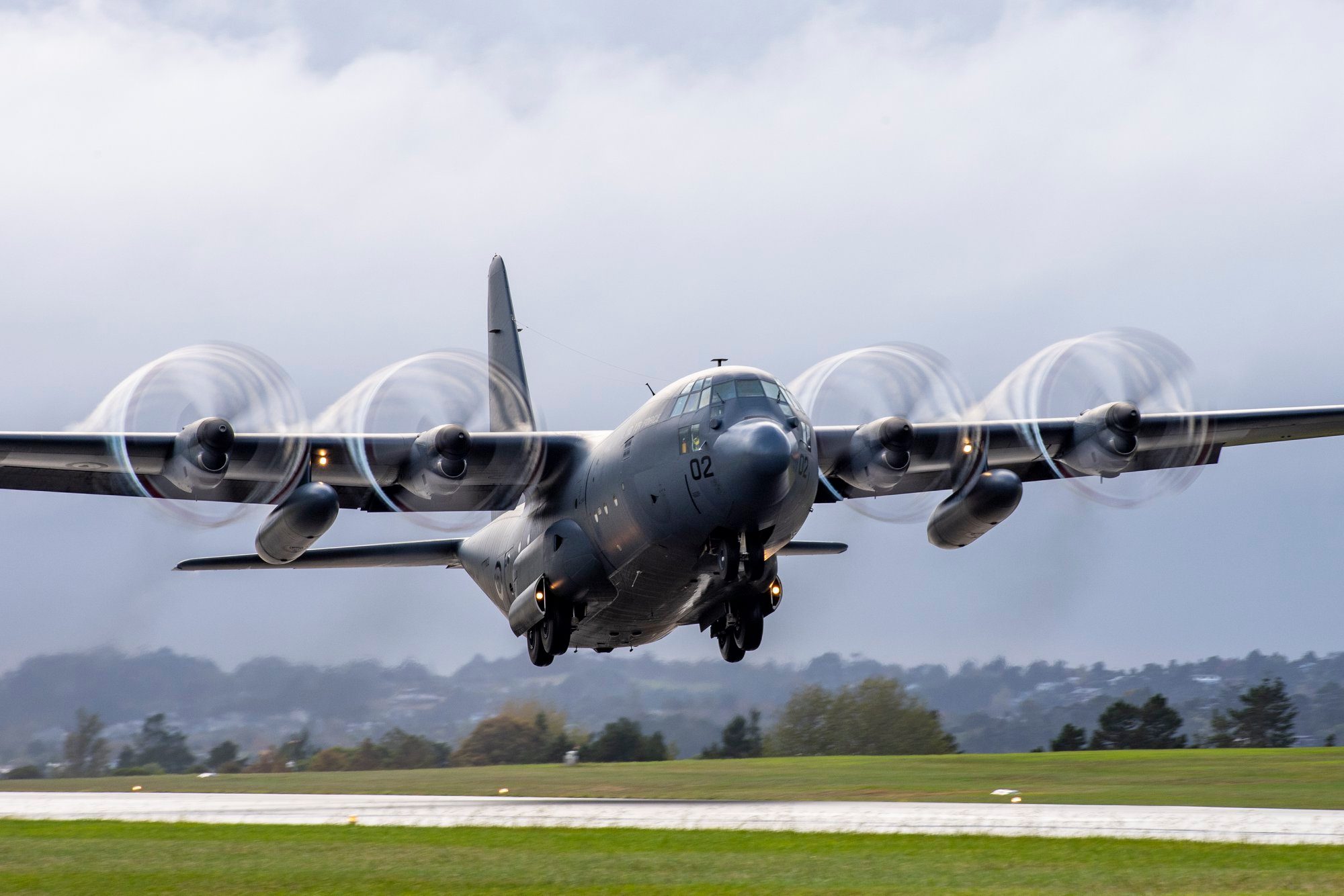New Zealand’s fleet of C-130H Hercules have been a visible presence in the skies around Aotearoa and further afield since 1965.

Images of the Royal New Zealand Air Force (RNZAF) Hercules winging its way to Europe to help partner militaries support Ukraine defend itself against Russia’s invasion is just the most recent example of the type of deployments these aircraft have been used for over the intervening decades.
At the same time as this most recent deployment, an integrated project team at Manatū Kaupapa Waonga New Zealand Ministry of Defence is working hard behind the scenes on the procurement of the replacement – the new Lockheed Martin C-130J-30.
Lockheed Martin is expected to begin assembly of the new aircraft in March 2023, once a critical design review is complete. Five new aircraft will then begin arriving in Aotearoa in 2024, with the full fleet operating from 2025.
READ MORE
- NZ C-130Js to Get Specialist Equipment, Advanced Sensors
- C-130H vs C-130J-30
- A closer look at the C-130J-30 Super Hercules
- Reaching for the sky – Super Hercules delivery in 2024
The new fleet will add capacity to Defence’s first line of response in many situations, both within Aotearoa, the Pacific and further afield. “This is a more fuel efficient aircraft that can travel further and carry more,” says Air Domain Director Sarah Minson.
The C-130J-30 has more capacity than its predecessor due to its additional 5.4m in length and a payload capacity of 21 tonnes.
“In a humanitarian aid and disaster relief scenario in the Pacific, we’ll have a greater range. With a 15 tonne payload, the new aircraft will be able to travel 2400 nautical miles, compared to the current 1800nm. That will make a substantial difference in how quickly we can reach our destination and offer our support.”
The aircraft will also be fitted with additional specialist equipment, making it among the most capable in the world. Each will be fitted with wide bandwidth, high speed satellite communications system and an electro-optical/infra-red camera. Imagery, video and data can be streamed in real-time and the camera allows for aerial surveillance including while undertaking transport tasks – particularly useful during search and rescue and humanitarian and disaster relief missions.
The aircraft are being procured through the United States’ Foreign Military Sales process. Along with the new fleet, the $1.5 billion project will also deliver a full mission flight simulator and other supporting infrastructure.
C-130J-30 Specifications
Wing span: 40.41m
Height: 11.85m
Length: 34.4m
Speed: 330kts
Payload: 21 tonnes
Passengers: 128




